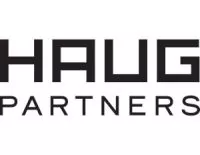In In re Silver, the Court of Appeals for the Fifth District of Texas at Dallas refused to recognize an attorney-client privilege for communications between inventors and patent agents. The case involved an inventor who owned patents on a tablet-like device that allows restaurant patrons to order meals and play games from their tables. Importantly, In re Silver was not a suit for patent infringement but rather a breach of contract suit (over a patent purchase agreement) brought under Texas state law. Id. at 3.
During discovery, the trial court ordered production of more than 300 emails between the inventor and his patent agent. Id. at 2. The inventor filed a writ of mandamus requesting that the Texas Court of Appeals hold that the attorney-client privilege applies to his communications with his patent agent and to vacate the trial court's order. Id.
The court denied the motion. The court reasoned that no patent agent privilege exists in Texas and that it could not create one. Id. In Texas, courts cannot create new privileges. Id. Privileges can only be created by the Texas Constitution, Texas Statutes, the Texas Rules of Evidence, or other rules established pursuant to statute. Id.
The Texas court's decision contradicts recent Federal Circuit precedent. In In Re Queen's University at Kingston, the Federal Circuit applied the attorney-client privilege to communications between a patent agent and his or her client. Id. at 24-25. The court limited the privilege to communications in furtherance of the tasks listed in 37 C.F.R. § 11.5(b)(1) and communications that are "reasonably necessary and incident to the prosecution of patents before the Patent Office." Id.
In creating the privilege, the Federal Circuit reasoned that patent agents engage in the practice of law. Id. at 13 (citing Sperry v. State of Florida ex rel. Florida Bar, 373 U.S. 379 (1963)). The Federal Circuit reasoned that people who practice law need the attorney-client privilege to freely discuss all aspects of a case with their clients. Id. at 12.
Although it contradicts federal common law, the Texas court's decision might be on firm federal footing. The Rules of Evidence state that federal law governs privilege where federal law applies, but that state law governs privilege where state law applies:
The common law — as interpreted by United States courts in the light of reason and experience — governs a claim of privilege unless any of the following provides otherwise:
- the United States Constitution;
- a federal statute; or
- rules prescribed by the Supreme Court.
But in a civil case, state law governs privilege regarding a claim or defense for which state law supplies the rule of decision.
Fed. R. Evid. 501 (emphasis added).
In other words, while the Texas court's opinion creates tension between federal and state privilege laws, the Federal Rules of Evidence permit such tension. For example, the Federal Circuit observed that the federal attorney-client privilege does not apply to accountants. In re Queen's University at Kingston at 24. However, some states do recognize an accountant-client privilege. See MCL 339.732. And federal courts have not applied this privilege when applying federal law. See BR North 223, LLC v. Glieberman, 2013 U.S. Dist. LEXIS 174422 (E.D. Mich. Dec. 10, 2013) (refusing to recognize Michigan's accountant-client privilege in post-judgment proceeding).
The Texas court explained that Queen's University did not apply because the Texas case involved a breach of contract claim and not a claim for patent infringement. The court further reasoned that the Federal Circuit applies its own common law (such as the patent agent privilege) to privilege issues that are unique to patent law. Under Rule 501, however, state privilege law applies where state law provides the rule of decision. In the court's view, therefore, Federal Circuit law did not govern the privilege question before it because Texas state law supplied the rule of decision.
In a dissenting opinion, one justice questioned whether the court had properly applied Texas law. The justice stated that the Texas Rules of Evidence do recognize a patent agent privilege. The Texas rules state that the attorney-client privilege applies to communications with "a person authorized ... to practice law in any state or nation." Id. at 4; Tex. R. Evid. 503(a)(3). In the dissent's view, a patent agent is authorized to practice law by the United States (which is a nation) and therefore is an attorney for the purposes of applying the law of attorney-client privilege in Texas. Id. at 5. The dissent also voiced concern that those facing claims for patent infringement in federal court might file satellite suits under state law to discover communications between patent agents and inventors. Id. at 6.
In light of In re Silver and Rule 501, patent agents should be aware that, while their client communications cannot be discovered in federal actions for patent infringement, these same communications may be discoverable in certain actions where state law supplies the rule of decision.
The content of this article is intended to provide a general guide to the subject matter. Specialist advice should be sought about your specific circumstances.

